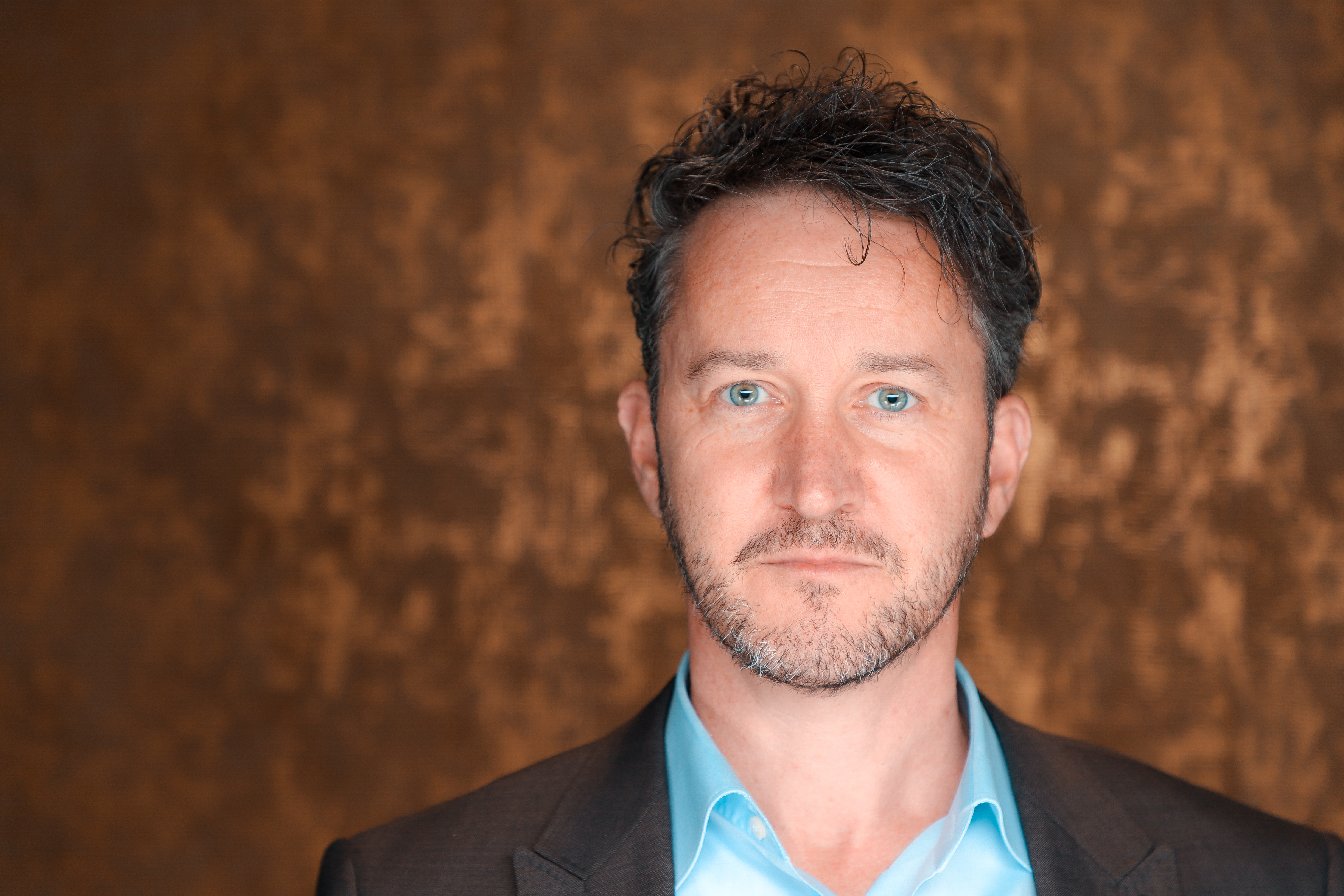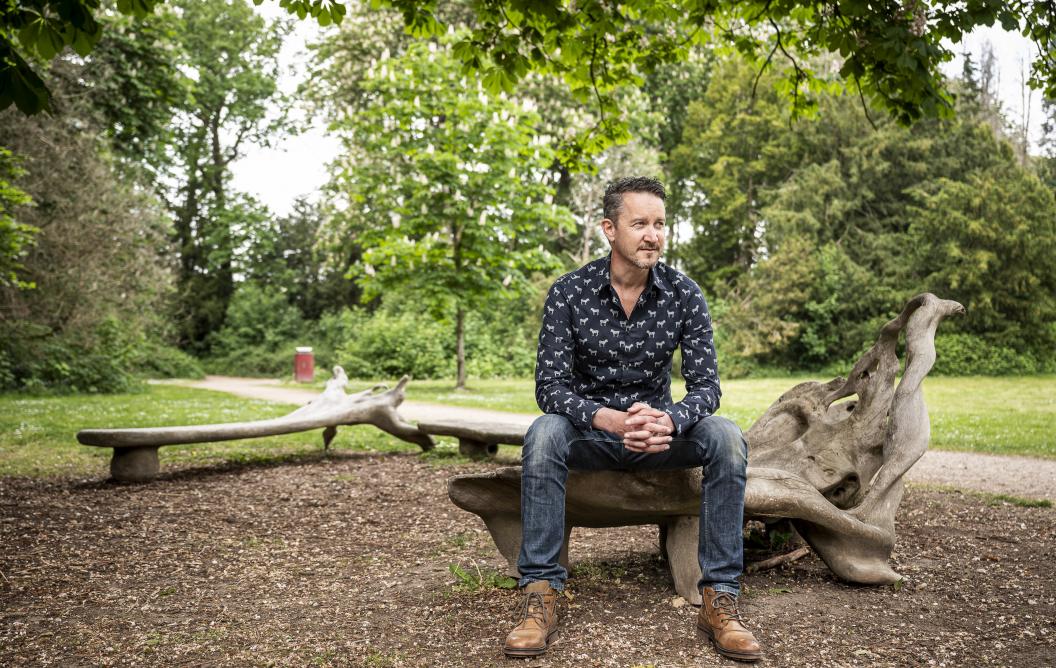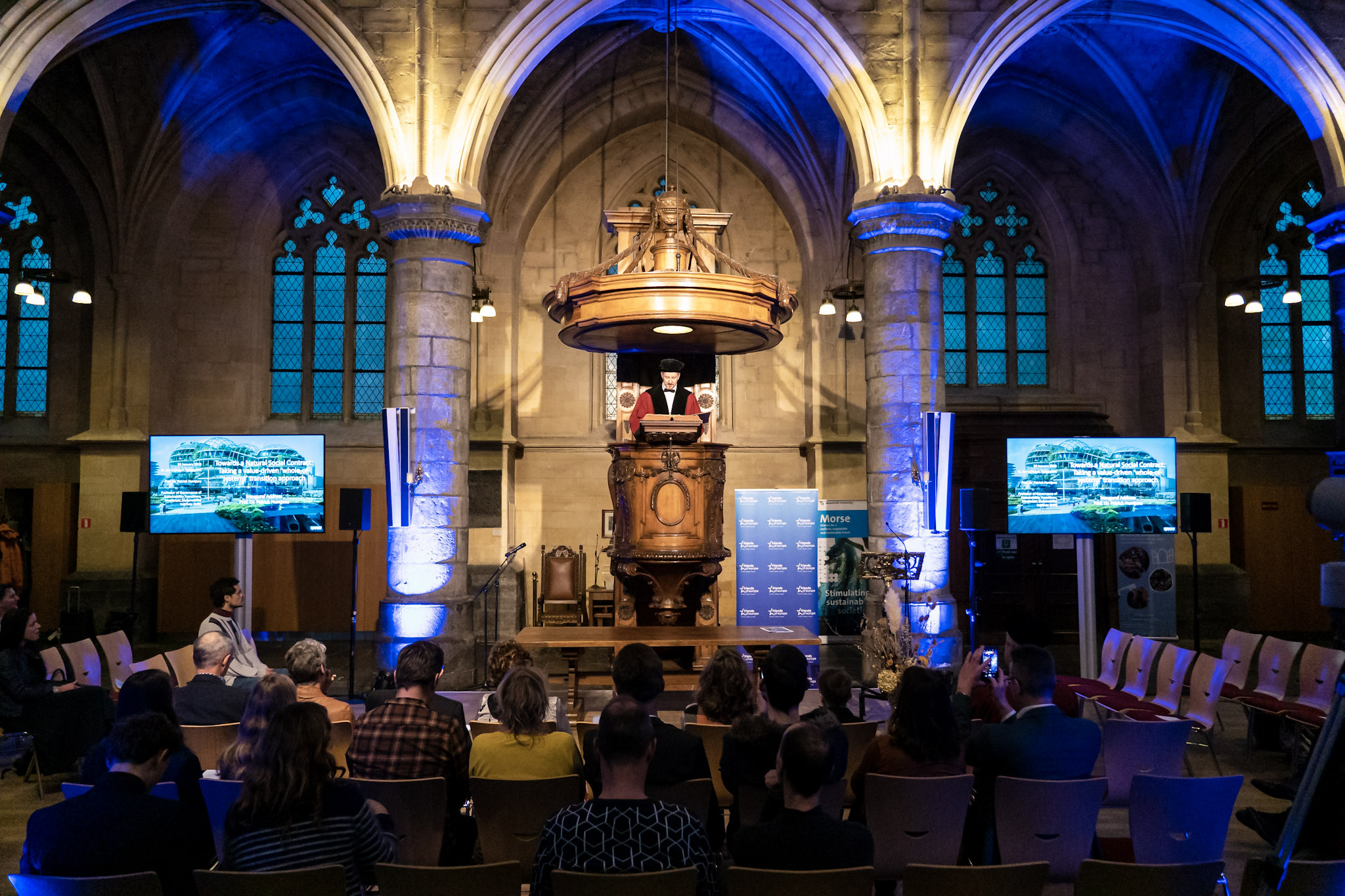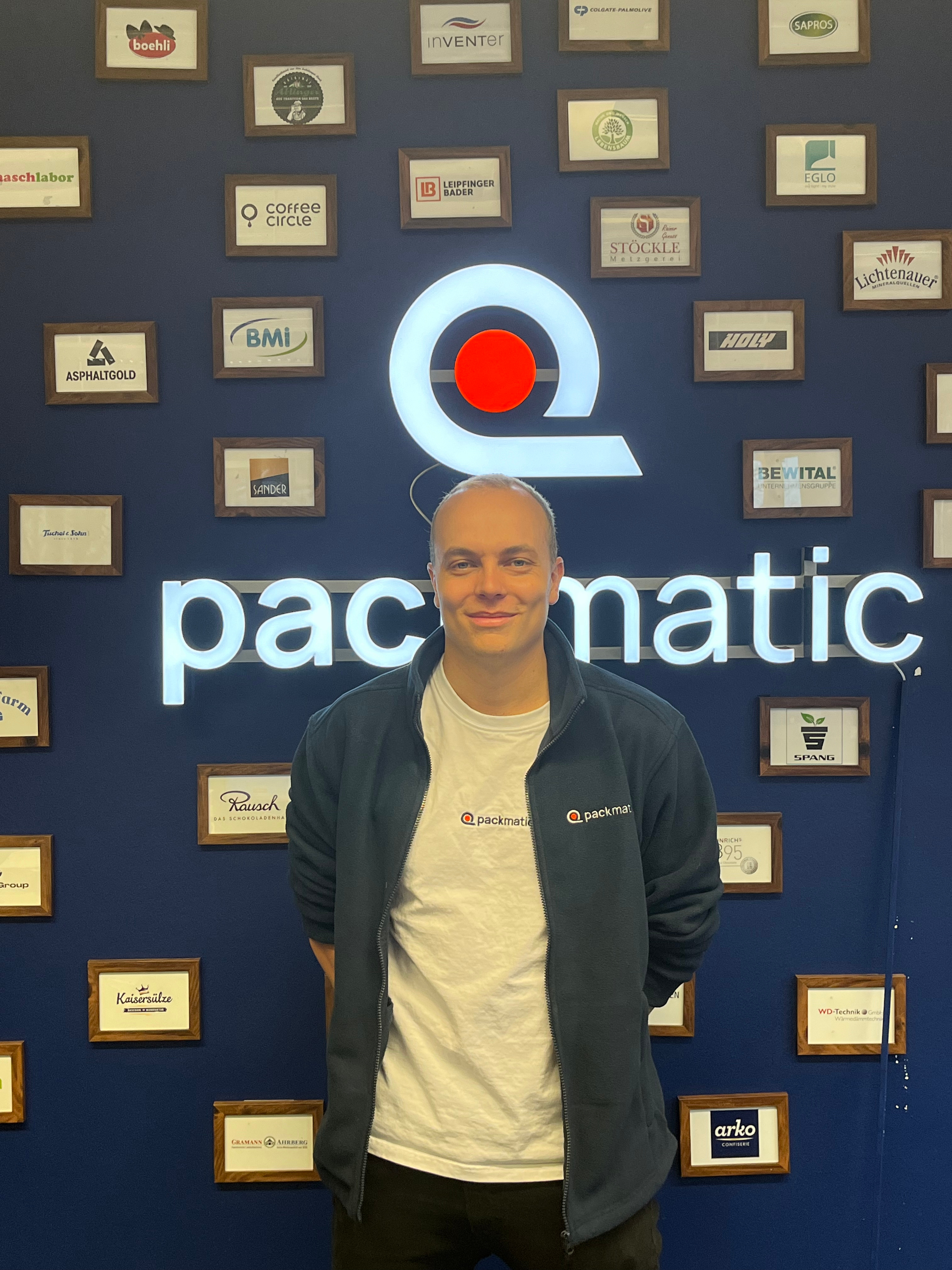How to be a good ancestor in a complex world
The status quo isn’t viable; we need to transform how we do things and how we think about them – not just in one domain but in the complex system made up of the interactions between all the domains. With his Natural Social Contract, Patrick Huntjens sketches a way forward.
“We are in the middle of an ecological, geopolitical and an inequality crisis. These can’t be seen in isolation; they are all interrelated parts of a systemic crisis. The social contract, the way we have organised and structured our society, isn’t working. It has been broken and we need a new one going forward.” Thus the portentous but undeniable premise for the research of Patrick Huntjens, recently appointed Professor of Governance of Sustainability Transitions.
He refers to the devastating floods in Limburg to illustrate the impact of climate change in our (by turns exceedingly moist and excessively dry) backyard. “From energy to food security, it’s obvious that we cannot survive without nature. We need to overcome the ecological divide, this relationship crisis between humanity and nature and our belief that we can solve all our problems through market mechanisms.”
Huntjens remains chipper and focused on coming up with solutions, whether at the Maastricht Sustainability Institute or in the ‘Living Labs’, for example one in Amsterdam where he and his students, together with stakeholders, aim to create the most sustainable, circular and inclusive city district in the Netherlands. On the theoretical front, he has come up with a holistic analysis of how the system isn’t working and how we can work towards a new social contract. This term refers to the implicit arrangement among citizens and between the citizenry and government about how things are done, what is right and what is legitimate. The concept has an august history.
Fine print in the social contract
Enlightenment thinkers such as Descartes, Bacon or Montesquieu developed the idea of a social contract. For all the focus on science and rationality, they still took for granted the Judaeo-Christian view of man above and apart from nature, the soil and beasts given to them by God to use. Neoliberalism went one better and put man against man, each driven by his desire to win a zero-sum game to maximise his own material gain. (The overly gendered language would have been approved of by everyone involved.)
“This view is fundamentally flawed of course. We know that we are a part of nature not apart from it. We depend on this complex ecosystem for sustenance in the same way that we depend on social networks for our flourishing.” Huntjens began his career as a biologist when a course on ecology came with an epiphany on systems thinking.
“It’s considering complex systems as a whole, rather than just isolated mechanisms within the systems. In ecology itself, that is really self-evident: if you move one dial, the effects will be visible everywhere else.” He researched coral reefs in Curacao and noticed that people were moving sand on top of the reefs to extend the beach in order to accommodate more tourists. This damaged the reefs, which, in turn, had disastrous effects on the fish population and thus on food security.
“It was really frustrating: no one listened to me when I explained that short-term economic interests had dramatic consequences on the ecosystem – of which those people were a part!” Huntjens realised he had to apply systems thinking to a bigger system and pursued a career in political sciences and complex system sciences to understand how and why those ecological dials were fiddled with in the first place.
Good ancestors of the future
Much as he likes nature, Huntjens doesn’t see that as necessary to be motivated to improve the system. “It’s about being a good ancestor! In the same way that we should be grateful for standing on the shoulders of giants, we must also be aware that the decisions we take now will have consequences for future generations. It’s clear that we are at a dead end – just open the newspapers….”
From energy and food to the economic system underpinning them, major transitions are necessary. The good news is that those have already begun and there is an increasing appetite for them. “From a vegan diet becoming the cheapest available and renewable energy becoming cheaper than fossil fuel to Dutch civil society successfully suing their government or Shell for not doing enough to meet the targets of the Paris Climate Accord in their policies – there are positive signs of game-changers born of society.”
Huntjens researches examples like the short food supply chains in metropolitan areas such as Amsterdam, Maastricht, Istanbul and Milan; or new subnational governance structures among Dutch farmers’ cooperatives, who are paid for ecosystem services, i.e. sustainable agriculture which benefits everyone. At an international level, his work on a Natural Social Contract is increasingly used as an actionable and positive vision for transformative change, for example by the Global Research and Action Network for a New Eco-Social Contract, and by the Intergovernmental Science-Policy Platform on Biodiversity and Ecosystem Services (IPBES) in its (ongoing) Transformative Change Assessment.

Patrick Huntjens is Professor of Governance of Sustainability Transitions at the Maastricht Sustainability Institute (MSI), School of Business and Economics (SBE), and Professor of Social Innovation and Governance for Sustainability at the Research and Innovation Centre Agri, Food and Life Sciences (RIC-AFL), Inholland University of Applied Sciences. He holds an M.SC. in biology, an M.Sc. in political sciences (cum laude) and Ph.D in complex system sciences (magna cum laude). Huntjens currently serves as Chairman of the National Round Table on the Food Transition (2021-2025) by DuurzaamDoor, a multistakeholder knowledge and innovation programme by the Netherlands Government. His book 'Towards a Natural Social Contract' has won the Nautilus Book Award 2022. In the Netherlands, he was awarded the national title ‘Professor of the Year 2021’.

Lack of political courage
“There are many successes but they are still taking place in niches.” There is only so much individuals can do; governments are in a better position to effect systemic change, like taxing products based on the public health and environmental damage they cause. “This type of systems innovation at scale is difficult because there is still a lack of political courage.”
Huntjens cites recent Dutch farmers’ protests as an example of the status quo maintaining itself. “Legislation to reduce nitrogen upset the vested interests, like the companies who produce fertilisers, pesticides, animal feed, etc.” Those actors have considerable financial heft. “They spent money not only on lobbying politician but to organise those farmers’ protest.”
Far from demonising them, Huntjens sees the farmers also as victims of the system, squeezed as they are by the revenue models of the big players, agricultural suppliers on one side and retail giants on the other. “They have to produce as much food per square metre without taking the social and ecological costs into account.”
We are so much more than self-interested
Huntjens warns that the system won’t change unless a majority of the citizenry move from an anthropocentric to an ecocentric world view, i.e. that we only exist as part of the ecosystem. “Without nature, our economies cannot function, and our societies cannot survive. The shift from an egocentric to an ecocentric social contract requires a fundamental reassessment of the purpose, goal and vision of our societies and economies, and what this means for the relationship between people and nature. Without such a paradigm shift, the status quo will continue to perpetuate itself: The average Westerner sees more than 300 ads per day, constantly urging us to consume more. Neoliberal political parties don’t want to abandon their core principles. Big corporations don’t want to forgo profits or forfeit their monopolies, etc.”
The concept of homo economicus, a hyper-rational actor considering only their self-interest, underpins of all our economic planning and design. In the current paradigm, that is how we conceive of humans, although interestingly enough we tend to apply it to ‘the people’ rather than to ourselves. “But we also need a sense of purpose, meaningful connections to others and contact with nature in some form. We have that knowledge but we are stuck in an economic system which, in large parts, disregards human nature.”
A natural social contract, as conceptualised by Huntjens, offers an alternative vision. “It is much closer to what we are as humans. We have an innate capacity for sharing and caring, we are inherently social, are geared towards collaboration, communication, and reciprocity. These behaviours come natural to us, they energise us!” Huntjens’ work on a natural social contract, and how to put it into practice, offers an appealing and realistic prospect to do so. “I want to offer a positive vision: a society to which we are eager to contribute as citizens, and to abandon the system underwriting the status quo; a society that is regenerative, rather than destructive to humans and our planet."
Also read
-
In recent years, there has been quite some debate surrounding the value of rakings. So the question is: do university rankings really matter that much? Fair question. In this article, SBE’s Dean Mariëlle Heijltjes and SBE’s Associate Dean Gaby Odekerken weigh in on the subject.
-
SBE alumnus Paul Schraven reflects on his journey after Maastricht University School of Business and Economics (SBE). After a stint in management consulting, he co-founded SparkSupply in Berlin, connecting students to startups. Shifting away from this model, he worked remotely for a US startup...
-
The rise of compliance reporting to make the lucrative coffee and cocoa trade more sustainable means millions of smallholder farmers generating valuable data. Who owns this data and who should benefit? SBE’s Fair & Smart Data Spearhead Sidi Amar and his team have developed some principles.



